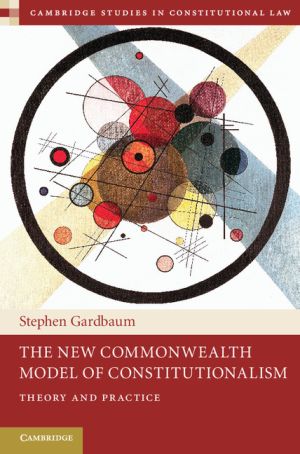
The introduction of recent bills of rights in Canada, New Zealand, the United Kingdom and Australia has been a significant departure from constitutional tradition within these countries. It is also an experiment in a new third way of organizing basic institutional arrangements in a democracy that promises both an alternative to the conventional dichotomy of legislative versus judicial supremacy and innovative techniques for protecting rights. This 'new Commonwealth model of constitutionalism' is an intriguing and important development in constitutional design of relevance to drafters of bills of rights everywhere. Stephen Gardbaum explores the theory and practice of the model, analyses its novelty and normative appeal as a third general model of constitutionalism and presents individual and comparative assessments of the operational stability, distinctness and success of its different versions in the various jurisdictions.